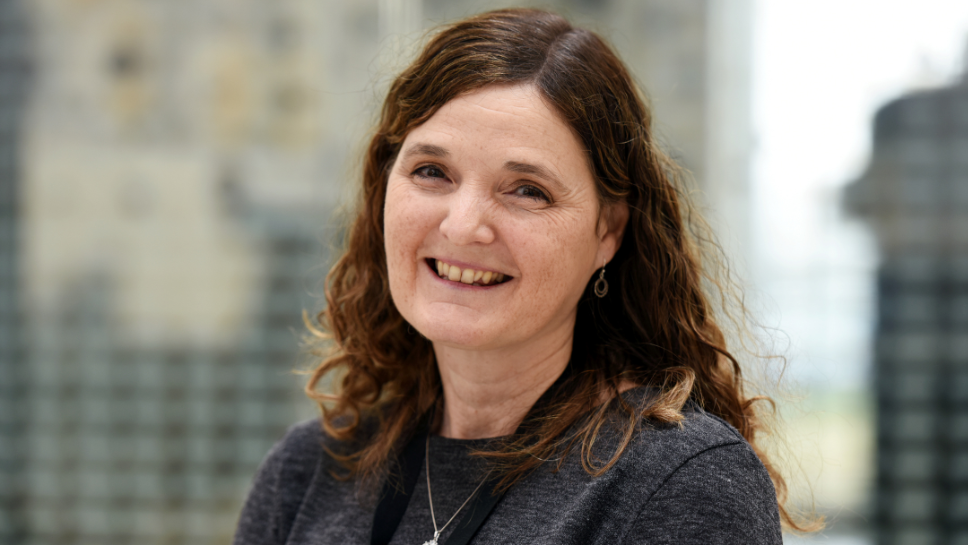
A career in science and muscular dystrophy
I’ve always had a brain for science as opposed to something artistic, so during my A-levels I decided I wanted a career in science. I did my degree in Physiology and Biochemistry and went on to complete a Biological Sciences PhD.
After I graduated, I worked in a hospital lab as a clinical biochemist, doing research and routine testing around liver and bone marrow transplants. I had a career break to have children. While they were young, I took a part-time position as a research assistant at Royal Holloway University of London in a gene therapy lab led by Professor George Dickson.
Then when my children started secondary school, I went full time and became the Research Officer for the Dickson group. My days were spent managing the lab and writing grant applications. In 2015, I was encouraged by Professor Dickson to apply for a five-year fellowship grant to become a lecturer funded by Muscular Dystrophy UK, which was thankfully awarded. I built up my academic career from there to the level I am today. I’ve been running research programmes to develop muscle therapies for almost ten years now − MDUK created my path and I’m so grateful for that.
My research
My research started with Duchenne muscular dystrophy. It then expanded into facioscapulohumeral muscular dystrophy, oculopharyngeal muscular dystrophy and skeletal muscle fibrosis. I now also have a PhD student starting work on Beckers. Much of this work has been funded by MDUK and we are privileged to have such support.
Doing research experiments has always been my biggest passion, but I grew to love the teaching alongside that. I had undergraduate students coming into the lab to do projects and some of them have gone on to do PhDs in muscle diseases. It’s all about building the next generation of scientists.
I think raising awareness of women in science is important, particularly to demonstrate to the younger generation what possibilities are out there now.
The rewards and challenges
The most important part of my job is knowing you’re doing something that’s making a difference to people’s lives. Meeting with patients and attending conferences is so beneficial as they’re the motivation for what we do. Some of the research we’ve done has contributed to the development of approved medicines and those in clinical trial; to be part of that is so rewarding.
There are always challenges along the way; getting grant money to continue the research is hard. It's very competitive but by building on good research, collaborating and pushing boundaries, you keep going as it’s all about developing therapies for those who need them.
Being a woman in science
I’ve never seen any conscious discrimination as a woman, but as you go higher in your career you notice it’s a male dominated industry. Even though it’s getting better, there’s still a lack of diversity at the top, and the gender pay gap still exists, so there’s more work to be done.
One of my daughters chose to do a degree in Biomedical Science and is currently studying Cancer Biology at masters level. My advice to her has always been to stick to your passion and don’t settle for anything that won’t make you happy. Persevere and push through to find the right place.
I think raising awareness of women in science is important, particularly to demonstrate to the younger generation what possibilities are out there now. I think the goal is to not make it about gender on its own though; everyone should receive recognition for outstanding research and contributions to science.
